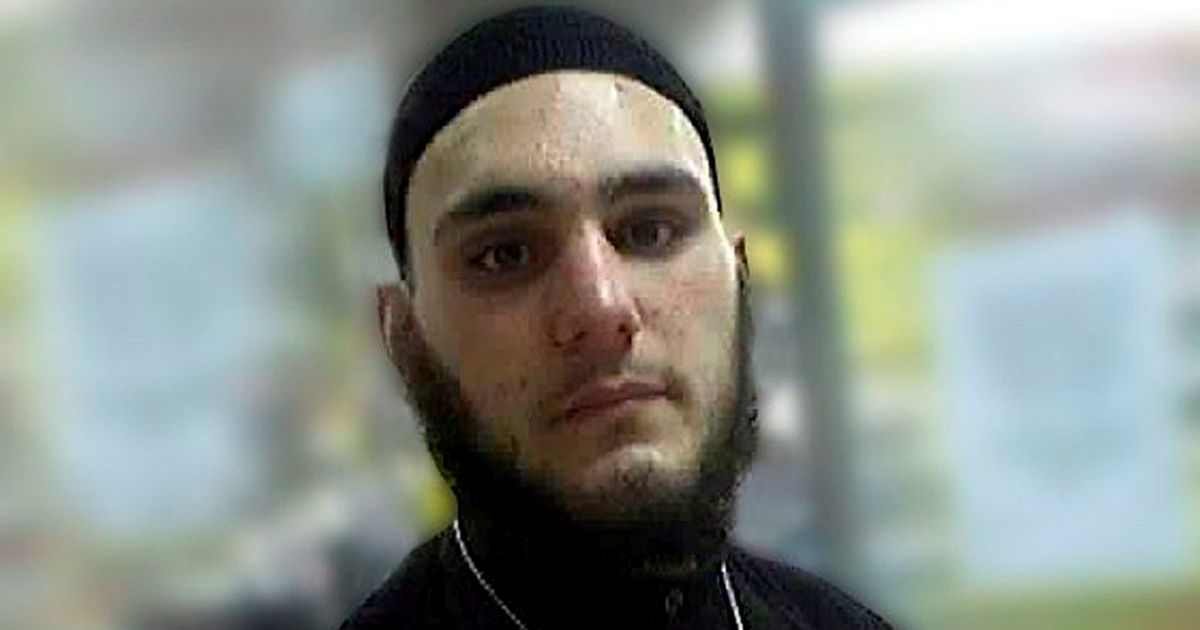He grew up in a £1m Bristol mansion and went to a string of expensive private schools
William Telford Business Editor
15:10, 22 Jun 2025
 Isa Ibrahim, formerly known as Andrew Michael, is up for a parole review after spending 16 years in prison(Image: SWNS – MASONS – HEMEDIA)
Isa Ibrahim, formerly known as Andrew Michael, is up for a parole review after spending 16 years in prison(Image: SWNS – MASONS – HEMEDIA)
A Bristol man jailed for planning a suicide bombing at the Broadmead shopping centre could be released soon. Andrew Michael, known as Isa Ibrahim, was caged in 2009 for plotting to kill shoppers.
Authorities were tipped off by a member of the Muslim community and Ibrahim was arrested before he could cause carnage. He had planned to blow himself up with a suicide vest after idolising the London 7/7 bombers and Al-Qaeda’s Osama Bin Laden.
Ibrahim was the son of a hospital consultant and grew up in a £1m Bristol mansion. He went to a string of expensive private schools but later started watching speeches by Islamist militant leader Omar Bakri Muhammad and former Finsbury Park cleric Abu Hamza.
He was convicted at Winchester Crown Court in July 2009. After converting to Islam, Ibrahim was sentenced to an indeterminate prison sentence with a minimum term of 10 years.
He had been found guilty of making an explosive with intent to endanger life or cause serious injury and preparation of terrorist acts. Trial judge Mr Justice Butterfield said Ibrahim was an “angry young person” and “well capable” of carrying out an attack. Ibrahim had said he did not intend to harm anyone, that he had trouble making friends and even talked to teddy bears as an adult.
Now, nearly 16 years later, Ibrahim could be released from jail. The Mail Online reported that Ibrahim, now aged 36, is up for a parole hearing.
“We can confirm the parole review of Isa Ibrahim has been referred to the Parole Board by the Secretary of State for Justice and is following standard processes,” a Parole Board spokesperson said. “’Parole Board decisions are solely focused on what risk a prisoner could represent to the public if released and whether that risk is manageable in the community.”
The spokesperson said a panel will “carefully examine a huge range of evidence, including details of the original crime, and any evidence of behaviour change, as well as explore the harm done and impact the crime has had on the victims”. There are hundreds of pages of evidence set to be reviewed ahead of an oral hearing.
The spokesperson also said: “Evidence from witnesses such as probation officers, psychiatrists and psychologists, officials supervising the offender in prison as well as victim personal statements may be given at the hearing. It is standard for the prisoner and witnesses to be questioned at length during the hearing which often lasts a full day or more.
“Parole reviews are undertaken thoroughly and with extreme care. Protecting the public is our number one priority. A decision on Ibrahim’s case is expected over the coming weeks.”
The son of Christian parents, Ibrahim had a lavish upbringing. His Egyptian-born father, worked as a consultant pathologist in the NHS. Ibrahim’s older brother became a software engineer after graduating from the University of Oxford.
But despite the luxury lifestyle in the family’s gated mansion in Frenchay, Ibrahim developed a drug habit. He first took cannabis aged just 12, and was expelled from three private schools including the £19,065-a-year Colston’s School and the Queen Elizabeth Hospital school which has fees of £20,895-a-year.
The even more expensive Roman Catholic Downside School, in Bath, where Ibrahim was a boarder, cost his family £24,141-a-year. Ibrahim received nine GCSEs while a pupil at the Bristol Cathedral School. He then became a student at the City of Bristol College.
He would later plan to take innocent people’s lives. Ibrahim made an explosive vest in his flat and carried out surveillance of Broadmead. It was found that he hoped to achieve maximum damage using ball bearings and nails in his vest, purchasing items he needed from high street shops.
Thankfully, worried members of Bristol’s Al-Baseera mosque reported injuries Ibrahim suffered from testing explosives. They told police about their concerns over his extreme views and that he was acting suspiciously.
It is understood to be the first time a potential terrorist was brought to justice where members of the Muslim community played a key role. Ibrahim had not been on the radar of security services at the time.
When police searched his home, the floor crackled under officers’ feet because of the huge amount of explosive powder in the flat. Police found Hexamethylene Triperoxide Diamine (HMTD) an explosive substance used in the 7/7 attacks, an incomplete suicide vest, films of Ibrahim testing the explosives and an electrical circuit capable of being used as a detonator.
A controlled explosion had to be carried out at the flat, where a radical book advocating jihad was also discovered. Detective Chief Inspector Matt Iddon said Ibrahim’s kitchen had become an “explosive laboratory”.
He said: “He identified that the (Broadmead) food court was a dense area. It’s full of families – husbands, wives, children, groups of young friends – relaxing and enjoying the day. He intended to blow himself up there.”
